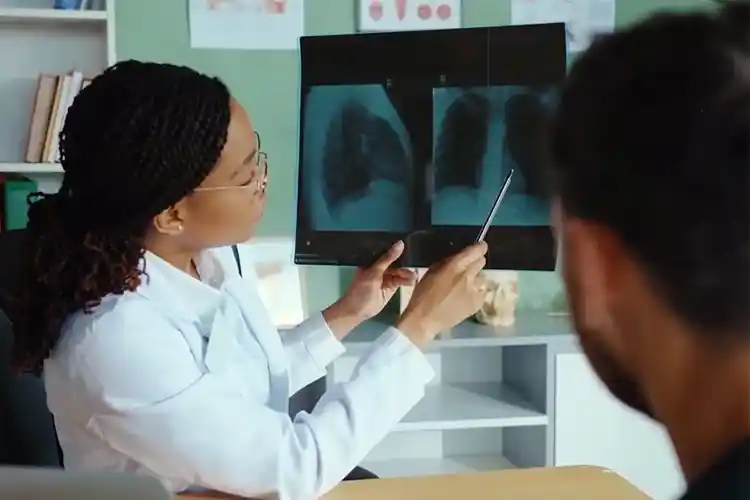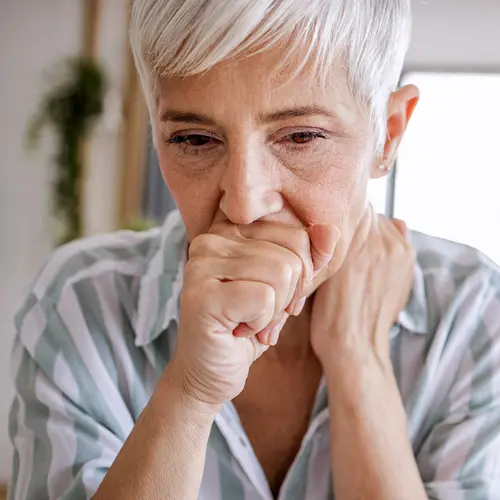Your First Steps

Hide Video Transcript
Video Transcript
[MUSIC PLAYING] JAMES STEVENSON: One of the first parts of the discussion is understanding where are we with the staging process, what does the information that we have right now mean in terms of the diagnosis, certainly making sure that they understand the diagnosis being lung cancer.
Getting to treatment is understanding what the stage of that individual's cancer is, and that involves potential other imaging studies or even procedures. And then the stage of the cancer-- which will vary anywhere from stage 1, being the earliest stage, to stage 4, being more advanced-- will help us to know what the best treatment options are.
Another big part of the discussion that we have after a biopsy has been done and shows cancer-- how does it look under the microscope? What type of lung cancer is it? Because that will impact our treatment options.
The two major types of lung cancer are non-small cell lung cancer, which accounts for over 80% of lung cancer diagnoses, and then the other group is called small cell lung cancer. And they look different under the microscope, and they also can be different in the way that they grow and spread. Those are some things we have to consider.
Treatment options within no-small cell lung cancer-- basically everything in terms of cancer treatment can be on the table for those patients, which could range from surgery-- more focused or what we call local treatment-- to drug therapies. Drug therapies go throughout the body, which could be chemotherapy for cancer, but also other drugs like immune therapies as well as other treatments that we call targeted therapies. And then another treatment would be radiation treatments, which are more focused treatments to one area.
Those are three treatments that we sometimes use alone or in combination with each other. Again, the stage will really lead us down the road to making the best recommendation for those treatments. It's a life-changing diagnosis. Their lives-- their family lives aren't going to be the same after diagnosis of lung cancer. And those initial discussions are just the first steps in the journey.
Getting to treatment is understanding what the stage of that individual's cancer is, and that involves potential other imaging studies or even procedures. And then the stage of the cancer-- which will vary anywhere from stage 1, being the earliest stage, to stage 4, being more advanced-- will help us to know what the best treatment options are.
Another big part of the discussion that we have after a biopsy has been done and shows cancer-- how does it look under the microscope? What type of lung cancer is it? Because that will impact our treatment options.
The two major types of lung cancer are non-small cell lung cancer, which accounts for over 80% of lung cancer diagnoses, and then the other group is called small cell lung cancer. And they look different under the microscope, and they also can be different in the way that they grow and spread. Those are some things we have to consider.
Treatment options within no-small cell lung cancer-- basically everything in terms of cancer treatment can be on the table for those patients, which could range from surgery-- more focused or what we call local treatment-- to drug therapies. Drug therapies go throughout the body, which could be chemotherapy for cancer, but also other drugs like immune therapies as well as other treatments that we call targeted therapies. And then another treatment would be radiation treatments, which are more focused treatments to one area.
Those are three treatments that we sometimes use alone or in combination with each other. Again, the stage will really lead us down the road to making the best recommendation for those treatments. It's a life-changing diagnosis. Their lives-- their family lives aren't going to be the same after diagnosis of lung cancer. And those initial discussions are just the first steps in the journey.
